
AlphaLISA Bovine IL-1β Detection Kit, 500 Assay Points
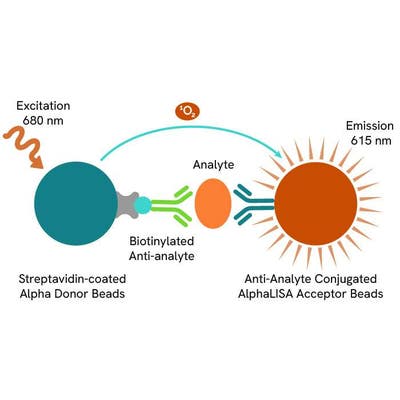

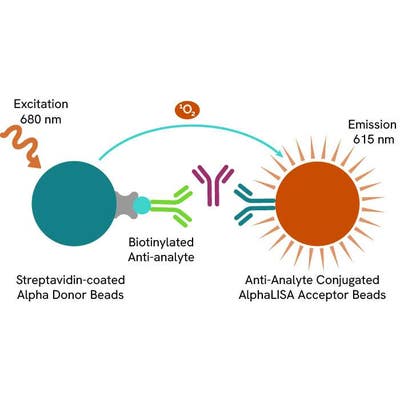 View All
View All
AlphaLISA Bovine IL-1β Detection Kit, 500 Assay Points
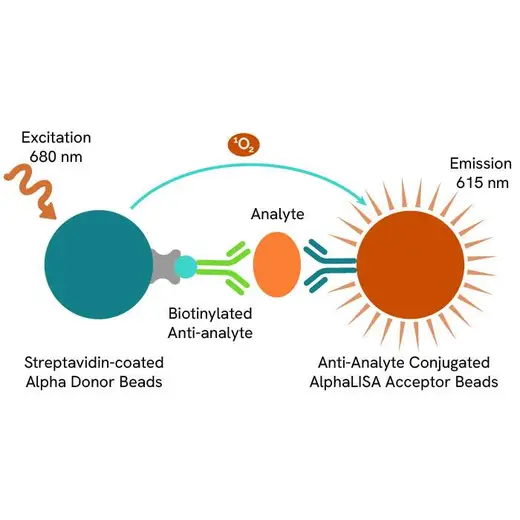

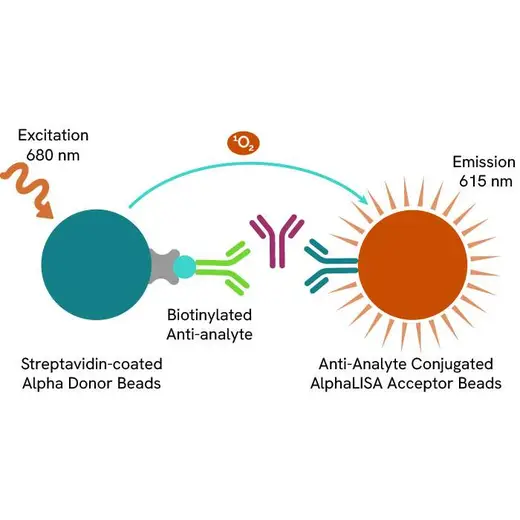




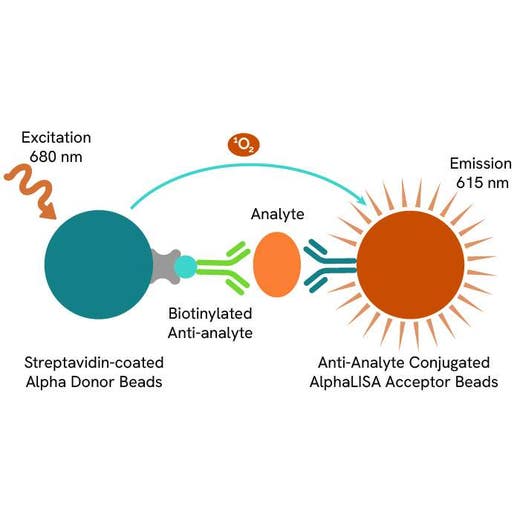

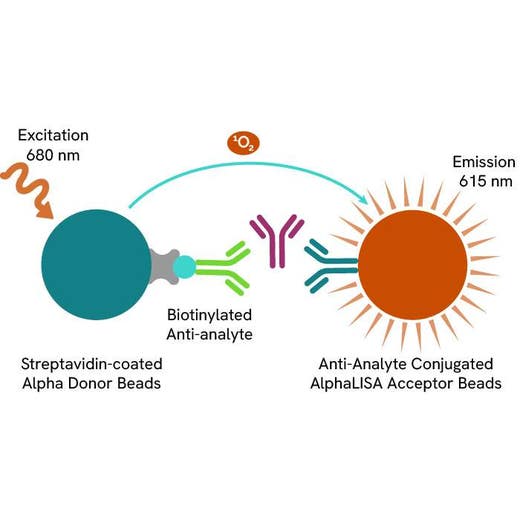




The AlphaLISA immunoassay kit for detection and quantitation of bovine IL1β in bovine serum, plasma, cell culture supernatants, and other sample types allows for fast, reproducible, and sensitive detection without the need for time-consuming wash steps or complicated assay development.
For research use only. Not for use in diagnostic procedures. All products to be used in accordance with applicable laws and regulations including without limitation, consumption and disposal requirements under European REACH regulations (EC 1907/2006).
| Feature | Specification |
|---|---|
| Application | Protein Quantification |
| Dynamic Range | 1 - 300,000 pg/mL |
| Limit of Detection | 20 ± 15 pg/mL |
| Limit of Quantification | 67 ± 45 pg/mL |
| Sample Volume | 5 µL |
The AlphaLISA immunoassay kit for detection and quantitation of bovine IL1β in bovine serum, plasma, cell culture supernatants, and other sample types allows for fast, reproducible, and sensitive detection without the need for time-consuming wash steps or complicated assay development.
For research use only. Not for use in diagnostic procedures. All products to be used in accordance with applicable laws and regulations including without limitation, consumption and disposal requirements under European REACH regulations (EC 1907/2006).







AlphaLISA Bovine IL-1β Detection Kit, 500 Assay Points







AlphaLISA Bovine IL-1β Detection Kit, 500 Assay Points







Product information
Overview
Formats:
- Our HV (100 assay point) kits allow you to run 100 wells in 96-well format, using a 100 µL reaction volume (10 µL of sample).
- Our 500 assay point kit allows you to run 500 wells in 96-well or 384-well format, using a 50 µL reaction volume (5 µL of sample).
- Our 5,000 assay point kit allows you to run 5,000 wells in 96-well or 384-well format, using a 50 µL reaction volume (5 µL of sample).
Features:
- No-wash steps, no separation steps
- ELISA alternative technology
- Sensitive detection
- Broad sample compatibility
- Small sample volume
- Results in less than 3 hours
- Half the time of an ELISA assay
IL-1, a proinflammatory cytokine, is produced by immune cells following bacterial, viral, fungal, and parasitic infections. It is produced as two forms, IL-1? and IL-1?. IL-1? mediates both local and systemic inflammatory responses and up- regulation of bovine IL-1? in serum and milk is associated bovine with mastitis diseases and to vaccination. The present kit permits detection of bovine IL-1? (i.e. analyte) in bovine serum, plasma, and cell culture supernatants. Detecting in milk samples is also possible.
AlphaLISA technology allows the detection of molecules of interest in a no-wash, highly sensitive, quantitative assay. In an AlphaLISA assay, a biotinylated anti-analyte antibody binds to the Streptavidin-coated Donor beads while another anti-analyte antibody is conjugated to AlphaLISA Acceptor beads. In the presence of the analyte, the beads come into close proximity. The excitation of the Donor beads causes the release of singlet oxygen molecules that triggers a cascade of energy transfer in the Acceptor beads, resulting in a sharp peak of light emission at 615 nm.
Specifications
| Application |
Protein Quantification
|
|---|---|
| Automation Compatible |
Yes
|
| Brand |
AlphaLISA
|
| Detection Modality |
Alpha
|
| Dynamic Range |
1 - 300,000 pg/mL
|
| Limit of Detection |
20 ± 15 pg/mL
|
| Limit of Quantification |
67 ± 45 pg/mL
|
| Product Group |
Kit
|
| Sample Volume |
5 µL
|
| Shipping Conditions |
Shipped in Blue Ice
|
| Target |
IL1β
|
| Target Class |
Cytokines
|
| Target Species |
Bovine
|
| Technology |
Alpha
|
| Therapeutic Area |
Inflammation
|
| Unit Size |
500 Assay Points
|
Image gallery






AlphaLISA Bovine IL-1β Detection Kit, 500 Assay Points






AlphaLISA Bovine IL-1β Detection Kit, 500 Assay Points






Video gallery

AlphaLISA Bovine IL-1β Detection Kit, 500 Assay Points

AlphaLISA Bovine IL-1β Detection Kit, 500 Assay Points

Resources
Are you looking for resources, click on the resource type to explore further.
Leptospirosis is an infectious disease caused by Leptospira bacteria, which can spread across different species of mammals...


How can we help you?
We are here to answer your questions.






























